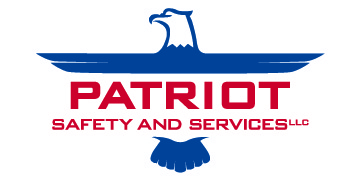Hiring is one of the most important decisions a business makes, but moving too quickly can mean missing critical details. Criminal background checks give employers an effective way to confirm that each new hire meets company standards for trustworthiness, professionalism, and safety. Consistent and correct use of these checks builds a workplace where businesses manage risk, protect people, and operate with confidence.
A criminal background check allows employers to evaluate whether a candidate has a history of convictions that could impact their suitability for a specific role. This includes accessing public records that may reveal charges or convictions related to theft, violence, fraud, or other serious offenses. The goal isn’t to eliminate applicants based on past mistakes, but to assess whether that past behavior is relevant to the responsibilities and risk level of the position.
High-Risk Industries Require Higher Screening Standards
In transportation, construction, logistics, and healthcare, employees often work independently, interact with vulnerable people, or handle sensitive data. The stakes run high. Poor screening can create serious consequences for the business, its clients, customers, and coworkers. Criminal background checks serve as an essential risk-reduction tool that supports responsible hiring practices.
Companies in these sectors also face elevated liability risks. Without a well-documented screening process, employers may be left vulnerable to claims of negligent hiring, especially if an incident occurs that could have been prevented by identifying a candidate’s prior convictions. In these environments, screening isn’t an option—it’s a necessity.
Legal Compliance: FCRA, EEOC, and Beyond
Employers have a legal right—and in many regulated industries, a clear obligation—to use criminal background checks as part of the hiring process. This is especially true for companies that are subject to federal regulations or safety oversight. The Fair Credit Reporting Act (FCRA) outlines how these checks must be conducted, including requirements for candidate consent, pre-adverse action notices, and an opportunity for the candidate to dispute inaccurate or incomplete results. Following these steps is key not just for legal compliance, but for fairness and transparency in the hiring process.
The Equal Employment Opportunity Commission (EEOC) also provides guidance on how employers should use criminal background checks. Rather than imposing blanket disqualifications based on any conviction, employers are expected to evaluate each result in the context of the role. Factors such as the nature of the offense, how long ago it occurred, and whether it’s relevant to the job duties must be considered. This approach helps create a more balanced and defensible screening process that upholds both safety and equity.
Supporting Internal Consistency and Accountability
Criminal background checks are particularly useful in helping employers maintain internal consistency. When hiring managers follow a standard protocol that includes objective screening criteria, the process becomes less subjective and more defensible. This helps avoid unintentional bias and ensures that all candidates are evaluated on the same scale. It also reinforces internal expectations for professional conduct and sets a tone of accountability from the start.
Organizations that apply screening procedures inconsistently—or bypass them altogether in urgent hiring situations—risk creating gaps in workplace standards. Accurate background screenings help formalize expectations, protect company culture, and demonstrate a commitment to professionalism and employee well-being.
Reducing Risk Through Proactive Screening
From a risk management perspective, criminal background checks offer long-term value by preventing costly errors in hiring. Employers that fail to conduct proper screening may find themselves facing negligent hiring claims if an incident occurs that could have been predicted—or prevented—by reviewing an applicant’s criminal history. A well-documented background check process serves as evidence of due diligence and helps defend against liability in the event of a dispute or legal challenge.
In many industries, client expectations or vendor requirements may also dictate that only screened personnel are permitted on-site. Having a documented B2B background check process for HR compliance ensures that companies are in compliance not only with legal mandates but with business partnership standards as well.
Contractual and Regulatory Expectations
Organizations in regulated industries or government partnerships often need criminal background checks to stay eligible for contracts or certifications. Many clients, vendors, and partners also expect proof that anyone on a job site or in a secure area has been thoroughly vetted. By integrating background checks into the hiring process, businesses are better prepared to meet these expectations and protect their brand.
Maintaining records of completed checks and screening policies gives companies a competitive edge beyond hiring. Businesses that show proactive risk management earn long-term trust from partners, insurers, and government entities.
Why Criminal Background Checks Are a Smart Business Decision
Beyond compliance and safety, criminal background checks deliver measurable business value. Employers who adopt structured screening practices consistently report:
-
Lower Turnover Rates
By hiring candidates who align with company standards, businesses reduce early attrition, saving thousands in training and onboarding costs. -
Stronger Client and Partner Trust
Demonstrating that every employee is vetted builds confidence with clients, vendors, and regulators—often becoming a differentiator in competitive bids. -
Reduced Insurance and Legal Costs
Insurance carriers and courts view documented background checks as proof of due diligence. This can lower premiums and strengthen legal defenses against negligent hiring claims. -
Operational Consistency
A standard screening process helps HR teams move faster and make decisions based on verified data rather than guesswork. -
Enhanced Brand Reputation
A vetted workforce signals professionalism and reliability—qualities that directly support customer loyalty and long-term brand health.
In short, background checks aren’t just a regulatory box to check—they’re a strategic investment that pays off in safety, efficiency, and reputation.
How Patriot Safety and Services Delivers Compliant Screening
Patriot Safety and Services works closely with employers to provide compliant, efficient, and thorough criminal background checks that support hiring goals without slowing down the process. We understand that every business has unique screening needs, which is why we offer flexible services that can be scaled to fit both small teams and large enterprises.
Our process provides multi-jurisdictional criminal searches, Social Security number validation, and identity verification. We also integrate pre-employment drug testing and physical exams. For DOT-regulated employers or high-risk industries, we help create consistent, job-specific screening protocols that meet operational and legal requirements.
We offer guidance on crafting policies, managing adverse action procedures, and maintaining documentation for future audits. Whether you’re hiring for a highly regulated safety-sensitive role or a general support position, Patriot Safety and Services ensures that every screening is accurate, compliant, and actionable.
Building a Culture of Trust and Accountability
Criminal background checks go beyond hiring tools; they reflect your organization’s commitment to safety and integrity. Consistent and transparent screening builds trust across the workforce. Clients and partners see the company’s commitment to accountability. Employees know the same standards apply to everyone, from entry-level staff to top leadership.
A culture built on consistency, safety, and transparency helps retain quality talent, reduce turnover, and create a more stable, reliable work environment. Employees are more likely to thrive in settings where expectations are clearly communicated and upheld during the hiring process.
A Long-Term Investment in Safety and Reputation
Choosing to implement or strengthen your criminal background check process is a proactive investment in your company’s future. It reduces uncertainty, reinforces your values, and helps you build a workforce that supports your mission and protects your reputation.
When businesses treat background checks as standard risk management, they protect both their operations and their people. A trusted TPA provider for DOT compliance helps employers move forward confidently. With data, policy, and legal standards behind them, their hiring decisions stay strong and defensible.






